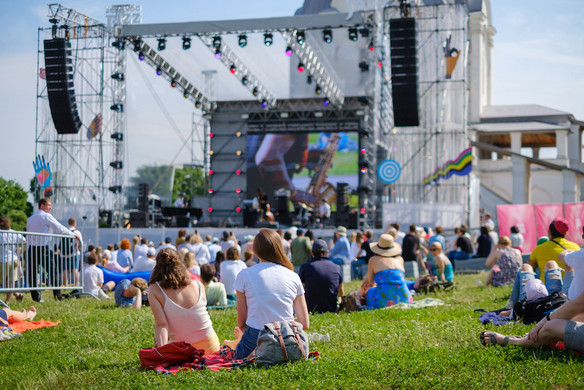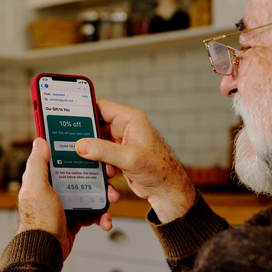This article was contributed by Amy Shoenthal and originally appeared on Forbes.
In March 2020, the live events industry shut down overnight, shuttering well-laid plans, jobs, and some businesses. There was a mass exodus of talented event professionals who evaluated the moment and sought out completely new careers. But others stuck around, pivoting to virtual events and shifting their businesses online while betting that the industry would, in fact, bounce back.
I spoke with three event company founders as they reflected on their experience through the pandemic and offered insights on where they see the live events industry heading next.
Dera Lee is the founder and CEO of Dera Lee Productions. She launched her own firm in 2015 creating events for brands such as Adidas, Brooks Running, Covergirl, and Secret deodorant. “I had been in the events industry for 15+ years and I knew I didn’t want to create events that were formulaic anymore. I wanted to create dramatic events and create emotional connections between brands and their audiences. I approach every event like a Broadway show, always going back to that storytelling process — who is the protagonist, who is the antagonist, and how do we tell that story so it’s interesting and so people want to be there?”
Jaci Badzin of TechTable has a similar story. “I have a background in performing arts and enjoyed creating productions. I lead events, brand experiences, and experiential marketing at Nike and Google. In 2014 I co-founded TechTable, an annual summit and content platform for hospitality innovation.”
Erica Taylor Haskins is a founding partner and Chief Growth Officer of Tinsel Experiential Design. “I founded the company with my two partners in 2010, after an earlier career working at advertising and marketing agencies. I was looking for a more direct and tangible way to tell stories and create moments of human connection, and quickly fell in love with the event industry.”
Amy Shoenthal: Tell me how you felt when the events industry came to a pause last March.
Dera Lee: I think it was February and I saw that some big conferences in China were cancelled. I knew it was coming but I didn’t fully grasp the reality of it. Within a week in March, every event was cancelled. We had five events cancelled in one day, and I told my staff to go home, and maybe don’t take the subway. My first priority was keeping my employees safe.
I was also supposed to get married in June. So I was going through a personal thing in addition to worrying about my business. I was also in the middle of home renovations. I was stuck in renovation pauses, cancelling my wedding, and trying to save my business.
Jaci Badzin: I was in shock. It took a bit for the idea to settle in that my entire industry had been decimated. I was very worried about my vendors and freelancers and reached out to a lot of them to check in, even just to talk and listen to how they were coping and see if I could support them. I dove into researching virtual event platforms, which offered little comfort, and began to put together a method for how I would create a multi-tiered digital experience. And, of course, started building a budget for the long haul.
Erica Taylor Haskins: The screeching halt for live events felt surreal, like a nightmare. Especially as the pre-pandemic mood was so focused on a very big, fruitful “Roaring 20s” after what was a somewhat lukewarm 2019 for the industry. Just a week before the world shut down, we had just landed one of our largest contracts to date. Things were looking so bright for us.
Amy Shoenthal: How did you decide what to do next?
Taylor Haskins: Like many of our colleagues in the industry, we worked to preserve cashflow against this completely unknown timeline by cutting operating costs wherever we could — including closing our office space in Dumbo to have our team work remotely. Then, last April, we did that awful and deeply stressful PPP dance. Ultimately, those funds helped to bridge us through the fall, when we ended up landing a handful of very large, Covid-safe program contracts — one for Pizza to the Polls across 29 U.S. markets during the lead-up to Election Day, and the second for Twitch, producing safe, at-home experiences for their top gamers and partners.
Last year completely turned the industry on its head. But through the truly stressful, scary, uncertain periods, the shake up actually forced many of us to innovate and re-evaluate our “normal” ways of doing business and rethink the experiences we create for our clients.
Dera Lee: For that entire next month my strategists and I reached out to every tech partner we had and requested demos from every platform we could get our hands on. It was research, research, research. That’s why we pivoted so easily. I couldn’t just sit on my butt. And eventually, we realized things were likely to be this way for a really long time.
Going into a virtual landscape wasn’t that crazy for me, because I just thought of it like live TV. We had always been creating digital content in tandem with events, but instead of livestreaming from live events we just livestreamed a bit differently now. We found great partners, we brought in TV broadcast freelancers, my tech director was busier than ever, but I feel like we became experts in virtual events really quickly. Skinceuticals was one of our first large virtual events.
I’m pretty transparent and my clients know that if I can’t do something I’ll say I can’t do it. But I knew we could do this. Overall it’s been pretty seamless, but it probably took us about three months to feel comfortable offering high-value digital experiences for our clients.
Jaci Badzin: Like most people in the events business, we shifted to virtual and created a digital experience in place of our annual summit. We also partnered with Zagat and The Infatuation to leverage their digital reach and engage with a wider audience. It was important to us to try to help the hospitality industry and, through our partnerships, we were able to share information on a broader scale.
Amy Shoenthal: Talk to me about the current state of the industry and what future events might look like now that people are starting to get more comfortable gathering?
Jaci Badzin: Safety is the new luxury. After a year of being repeatedly told we are not safe to leave the house, making people feel safe and welcome must be key to any event. Establishing trust will be a critical component to the marketing strategy, and clear communication about safety protocols must be emphasized.
Every component of events will be supported by digital, touchless communication. Designing for safety will be an essential strategy. The North Star of any gathering will be creating an experience where trust is the baseline, well-being is prioritized, and individuals feel comfortable to interact.
Hybrid events are here to stay. The past year has dramatically changed the events business ecosystem. “Live” experiences no longer equate to in-person experiences alone. The in-person event will need to emphasize networking and relationship-building while the digital experience will need to have a separate user journey customized to keep the attendee engaged. An added benefit of the hybrid event that makes it compelling to businesses is an entirely new set of metrics, such as the ROA (Return on Attention), which is one of the reasons these hybrid events will stick.
Dera Lee: Like anything else, our industry has to evolve. Weirdly, I’m more excited about experiential now than I’ve ever been. We’re seeing more humanity from these stories because we have to. I had a presenter whose doorbell kept ringing and they had to get up in the middle of it. It levels the playing field.
I think we’re going to see virtual events at least through the rest of the year. I don’t think it’s ever going to entirely go away. I don’t know why it would. Create & Cultivate usually hosts a 500-person event, but their first three-day digital conference hosted 7,000 people across multiple countries. The reach has expanded exponentially.
I do think that live events will come back in a bigger capacity come fall and winter. If the brand has the budget to do it, they’ll host a live event and a digital one, but they’ll be separate. Livestreaming a live event is tricky, you actually feel more disconnected seeing people in person while others are virtual. The whole point of events is to bring people together. To do that it either needs to be all virtual, all live, or two different — perhaps simultaneous — events.
We’re trying to figure out if vaccine passports are going to be a thing in the event industry. I don’t know how that’s going to fly. We’re probably going to see more ‘enter at your own risk’ language in tandem with a photo release form and liability clauses included at events.
Everyone’s hoping for live, in-person events to return. Pinknic is coming out in September, and I know there are music festivals happening this summer. All of us are looking with a close eye, just hoping they’re going to do it safely.
Erica Taylor Haskins: A lot of our clients are still planning for virtual or hybrid experiences in some way, shape, or form, but that is probably because it’s the “safe” response. One of my clients has boldly asked her company’s leadership, ‘Do we want to be the first brand in our market to return to live events, or the last?’ I’ve been using that question as a way to ground conversations with other clients for how they are thinking about moving forward.
In general, there is a hesitancy to be the first and potentially get things very wrong, but I think as soon as we see a trickle, there is going to be an opening of the floodgates. FOMO is going to be a big tipping point to force brands to get back to in-person events, as long as they have the right partners in place who are taking health precautions seriously as part of the planning process.
I hope we see smarter and more meaningful events. I speculate that after a year in quarantine, while there is a great hunger to gather and celebrate again, people will also be a lot more discerning about how they are spending their time. A basic cocktail reception or ballroom that’s just pretty for pretty’s sake without more meaningful programming or activations won’t be enough to engage and excite people and convince them to leave their homes.
Last, against the backdrop of this year’s social issues and political unrest, we are hearing that a lot of our clients are looking for ways to infuse their near-future events and activations with company values and opportunities for social impact. If and when we gather again, how can we do it in a way that is fun but also contributes to the greater good?
This article was written by Amy Shoenthal from Forbes and was legally licensed through the Industry Dive publisher network. Please direct all licensing questions to [email protected].
![]()











